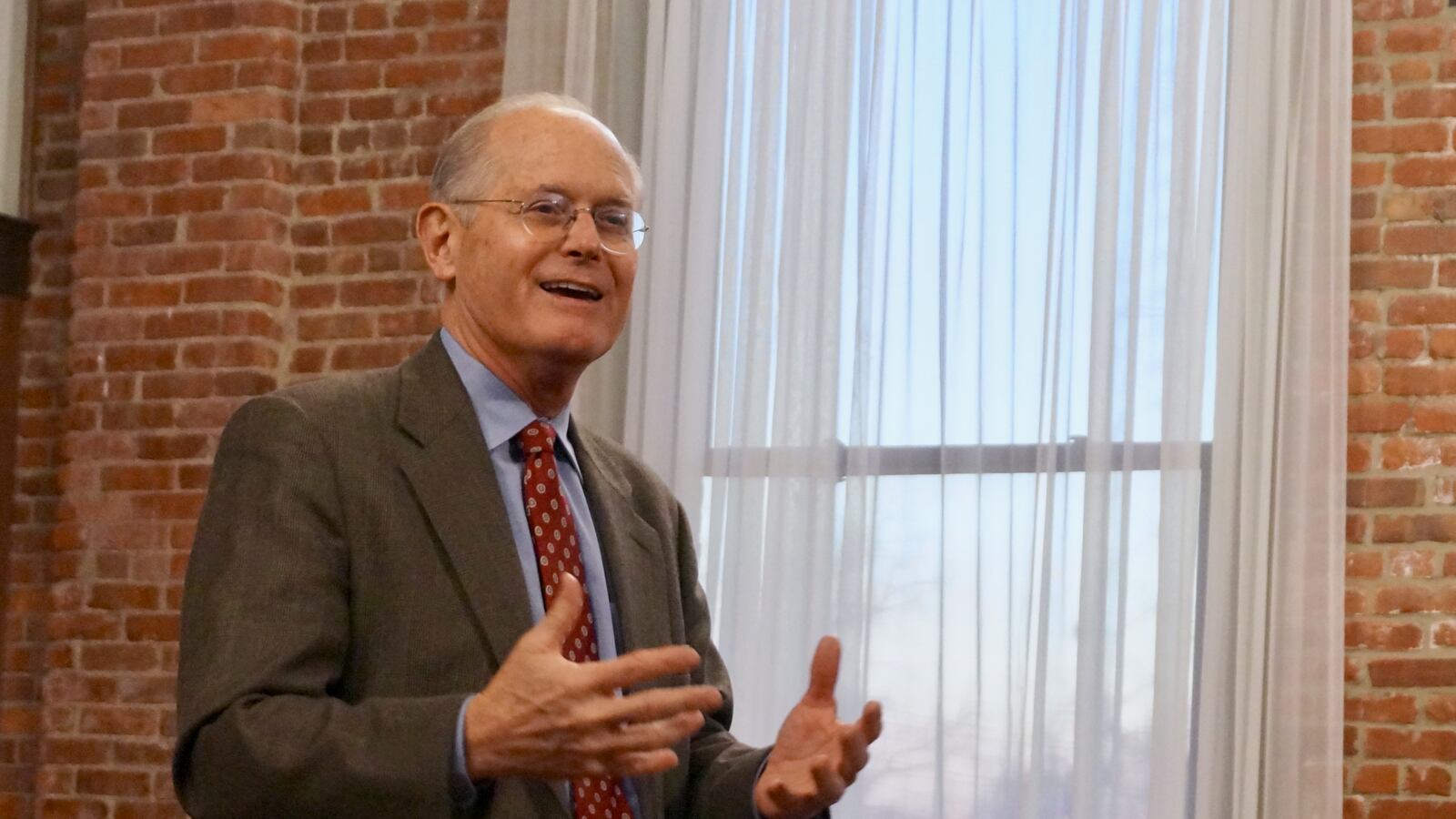When the author David Osborne set out to write about the benefits of having school districts hand power over to non-government managers like charter schools, he chose three role models: New Orleans, Washington, D.C., and Denver.
But during a visit to Indianapolis this week, Osborne seemed a little regretful about his examples.
Indianapolis Public Schools is embracing “innovation schools” so quickly that the city is outpacing Denver in its transformation, said Osborne, who directs the Reinventing America’s Schools Project at the center-left Progressive Policy Institute. Innovation schools, which are run by outside charter or nonprofit operators, began less than three years ago, but 20 percent of IPS students now attend them.
“If you’d started the innovation network about three years earlier, you’d be that third city,” Osborne told the audience at an Indianapolis event promoting his new book, “Reinventing America’s Schools: Creating a 21st Century Education System.”
Osborne is an unabashed fan of the so-called “portfolio” model for managing schools. He argues that instead of running schools, districts should be focused on long-term planning, choosing where and when to open and close schools. They should improve school options by closing low performing schools and replicating schools that have been successful. But he believes daily management should be handled by outside nonprofits.
“There’s so much for a district to deal with,” Osborne said. “Usually when they operate schools they get sucked into the crisis of the day, and they don’t have time to deal with these systemic issues.”
Most IPS schools are still managed by the central office, and the district provides the same services as most other urban school systems. But each year, more schools join the innovation network. There are currently 16 innovation schools, and this week the district announced two more schools that could be restarted with innovation partners.
Osborne joined Aleesia Johnson, who oversees innovation schools for IPS, and Brandon Brown of the Mind Trust Wednesday for a panel discussion on innovation schools.
While Osborne sees Indianapolis as a prime example of a city embracing the portfolio vision, it’s also true that the model might be more difficult for other urban school districts to embrace, panelists said. Even some advocates of innovation schools in Indianapolis say that the unique political landscape has led the district to change in ways that might not be possible in many other places.
Innovation schools have been supported by the state, but they haven’t been imposed, said Brown. Instead, local school board members have taken the lead in creating innovation schools.
“The Indianapolis model can’t be replicated full-scale in a new city because we all have different contexts,” Brown said. “There have to be so many conditions in place and there has to be a local will to get it done.”
Another important reason the program has been able to expand quickly — and relatively painlessly compared to other cities — in Indianapolis is because innovation schools are not just a way to forcibly restart struggling schools. The law, and district policy, also allow school leaders to voluntarily join the network. In fact, 12 of the existing innovation schools joined the network by choice. That includes IPS neighborhood and magnet schools where the principal chose to convert, and charter schools that joined the network.
That means the program could gain momentum if it appeals to school principals.
Johnson said that the district does not push schools to convert to innovation status. But even principals at traditional schools are getting more control over their budgets and daily operations, which could prepare them to lead innovation schools, she said.
“I don’t think it will feel like as big of a leap,” Johnson said. “I think, just sort of naturally, we will probably see the number of schools who want to convert increase.”


